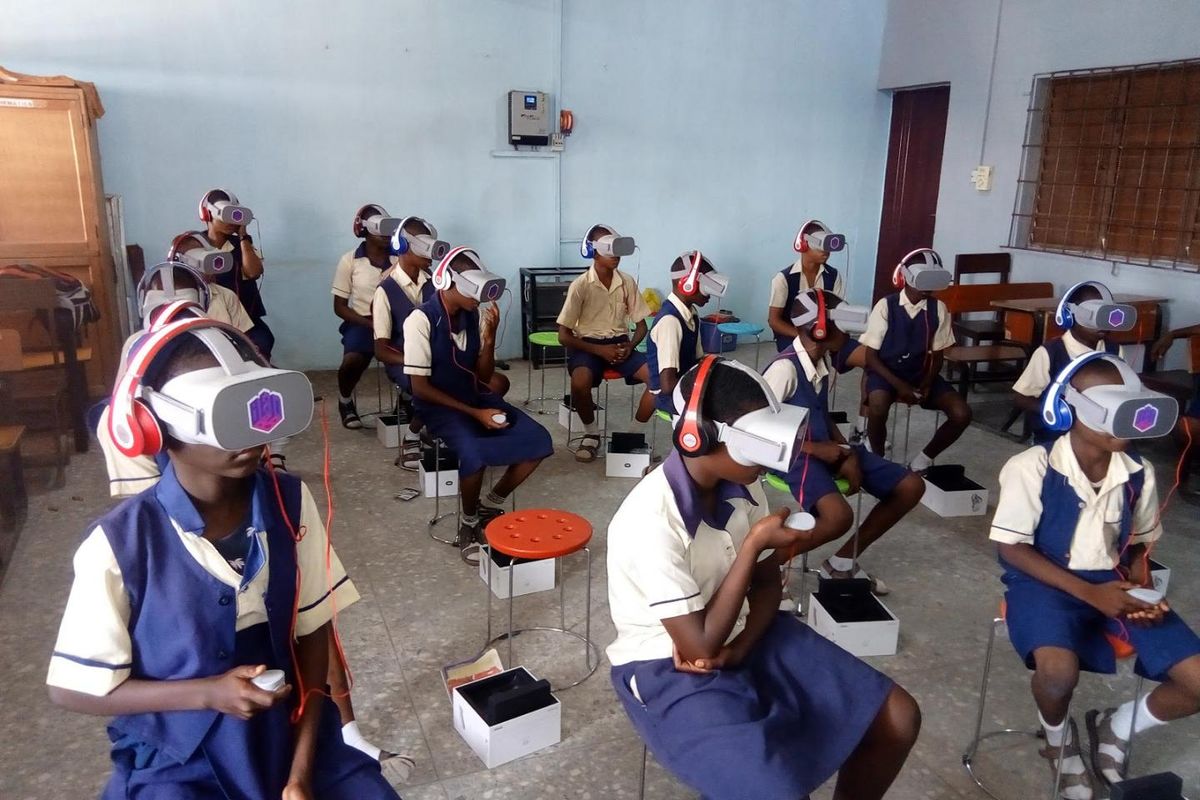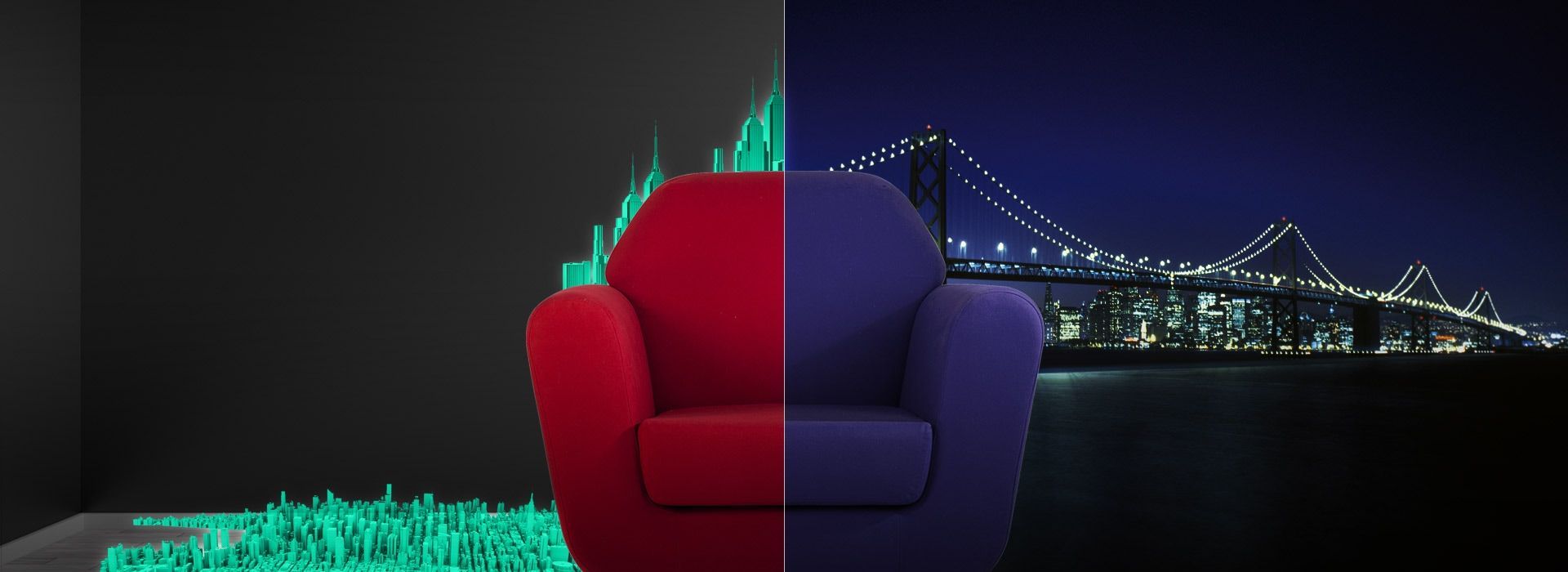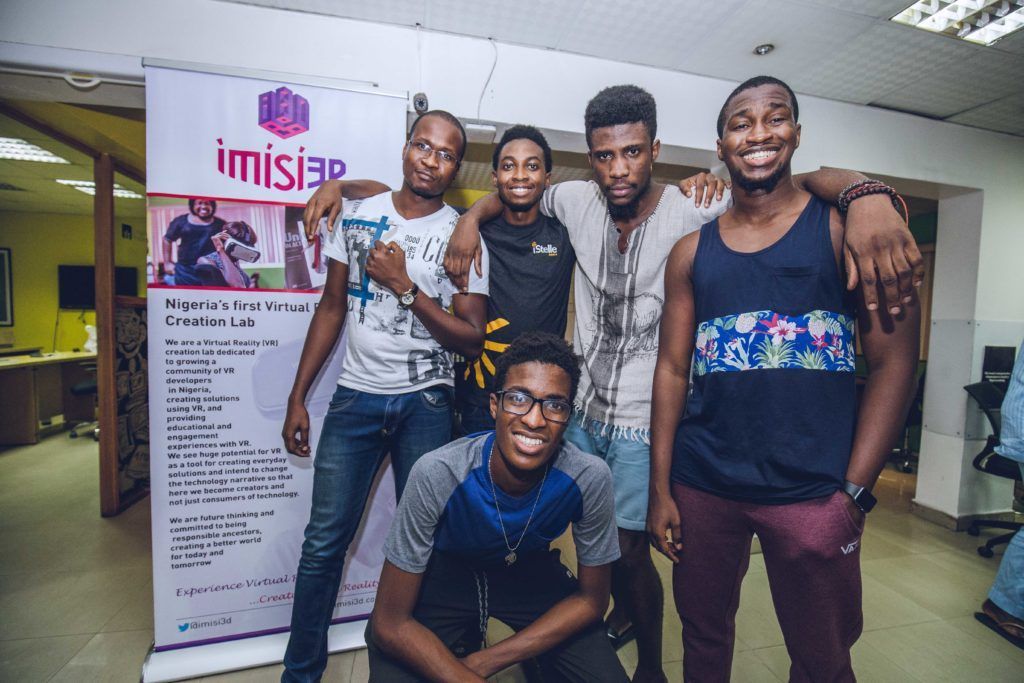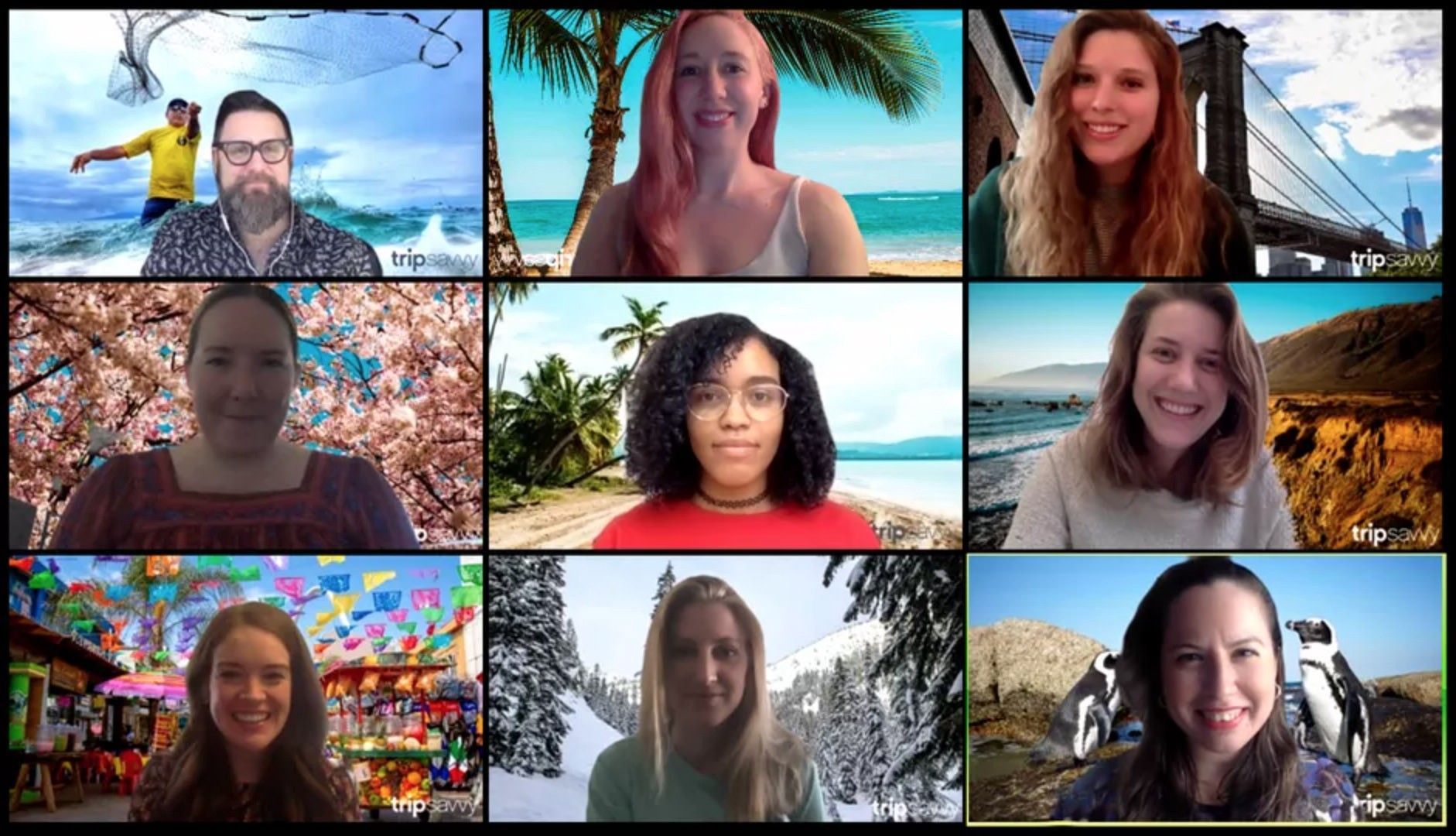Insights on AR/VR Industry in Nigeria; Past, Present, and Future
Virtual (VR) and Augmented (AR) reality have been herald as the next big thing since it gained prominence globally in 2016 with the success of VR gears like Oculus Rift, HTC Vive, Playstation VR and Google's Daydream.

Virtual Reality (VR) and Augmented reality (AR) have been herald as the next big thing since it gained prominence globally in 2016 with the success of VR gears like Oculus Rift, HTC Vive, Playstation VR and Google's Daydream. Since then, lots of other AR/VR startups have launched providing us with hi-tech solutions.
Before the AR/VR era, people only leveraged voice/video calls, messaging, and social apps to connect, but, AR/VR is changing this by providing a more immersive experience.
While VR transports users to a new world through a head-mounted display unit, AR allows people to connect virtual elements to their physical environments, granting immersive, transformative, and engaging experiences. These technologies are quite evident in mobile games like Pokemon Go and the social media filters users leverage to alter their looks.

However, the abilities of these technologies are not limited to immersive gaming and social filters. There are other huge opportunities people and brands can gain from using these technologies.
Experts predict the AR/VR global market to reach $72.8 billion by 2024. Its revenue at $1,274.4 billion in 2030 from $37.0 billion in 2019. These numbers show just how promising the industry is.
AR/VR in the pre-Covid era in Nigeria
On the home front, the industry took off in Nigeria in the late quarter of 2015 through the adoption of social filters. Later in 2016, the country saw the rise of AR/VR startups.
The first well-recognized AR/VR was Imisi 3D --- an extended reality creation lab that aims to create educational and engagement experiences on AR/VR. The startup hosted Nigeria’s first VR/AR hackathon in November 2016.
The event saw five teams of Nigerian AR/VR enthusiasts create solutions for the Samsung Gear VR. The teams consisted of developers, 3D animators, graphic designers, students, and entrepreneurs who were tasked with creating solutions in education, healthcare, and tourism.

Team LeVRn emerged winners of the hackathon with a solution that allows users to code using hand-based gestures in VR. The solution won the team $5000 seed funding, $1000 competition prize courtesy of Co-creation Hub, and another $1000 future prize courtesy of Institute of the Future.
After the hackathon, Team LeVRn partnered with UNICEF Innovation Fund and upgraded to a platform for curriculum-based learning tools that supports teacher and student classroom experience.
Other AR/VR startups founded in 2016 include StanLab, VR360 Stories, and Quadron studios.
VR360 Stories is Nigeria’s pioneer virtual reality film studio. The company got global recognition with their VR documentary, ‘Daughters of Chibok,’ after its feature at the 2019 Venice International Film Festival. At the festival, the film won the award of "The Best VR Story," making VR360 Stories the first African company to win the award.

StanLab is a 3D virtual laboratory application that allows students to practice science experiments hands-on and in real-time. It won the award for “audience choice winner” at the World Youth Summit Competition in 2016. While the startup didn’t receive any cash prize from that event, it would go on to win £20,000 at the British Council ideas challenge two years later.
Quadron Studios is another early VR/AR-focused startup that leverages immersive technology to alter how users interact with content. The startup produces VR animation content specifically for adverts and stories. It gained recognition in 2018 after graduating from the first cohort of the FbStart Accelerator, hosted by Facebook and Co-creation Hub.
These startups and many others that launched afterward opened users up to solutions AR/VR can create for them. They have helped Nigerian brands see how they can leverage these hi-tech solutions to provide a more immersive experience for their customers.
According to a survey carried out by Facebook in 2018 across 11 global markets (India, Nigeria, Brazil, Indonesia, South Korea, USA, Australia, Germany, UK, Canada, and France), 80% of Nigerians believe VR will become a part of their daily life.
The survey further revealed that people across 11 global markets are willing to use VR to try out products before purchasing them.
In Nigeria,
- Travel: 88% are looking to leverage VR/AR to check holiday destinations and hotels
- Entertainment: 73% are looking to leverage VR/AR to watch films from an immersive perspective
- Retail: 72%: are looking to leverage VR/AR to try on clothes or make-up
- Gaming: 69% are looking to leverage VR/AR to be the character in a virtual game
- Auto: 67% are looking to leverage VR/AR to take a car for a test drive.
Startups like Taeillo, a furniture company is leveraging 3D and AR views to allow customers to see how products fit in their space before purchase.
Just like Taeillo, Experis Immersive and Euphoria Labs are leveraging AR/VR to drive immersive experience for customers.

In a conversation with Derrick Ikenga, the founder of Euphoria Labs, regarding the adoption of AR/VR in Nigeria, he opined that the country is fully ready for AR but not VR.
According to Derrick, we already use AR in our Instagram and Snapchat filters. While the adoption of full-scale AR might take up to 2-3 years due to device limitations, social AR is already happening and here to stay.
His claims were evident in the wide adoption of AR/VR during the Covid-19 pandemic.
AR/VR in the Covid pandemic in Nigeria
Covid-19 hit Nigeria and the rest of the world with a new normal, cutting off physical and social interactions, as people were confined to their homes. These restrictions caused the mass adoption of remote work.
With the country in lockdown, brands had to fall back on technology to scale their offerings. There was a need for businesses to stay afloat while replicating physical interactions.
AR/VR was one of the major means brands utilized in connecting people beyond social distancing, remote work, and necessary restrictions.
The adoption of AR, VR, and XR (Extended Reality) soared during the lockdowns as people looked to it to replicate their physical experiences. There was a surge in using the Zoom app for school, meetings, webinars, and conferences. The company recorded up to 300 million daily participants in virtual meetings while it’s paying clients tripled. The startup’s offerings became better with the zoom virtual background - an example of augmented reality.

Netflix was another brand that spurred social experience during the pandemic. The firm leveraged Netflix party, a chrome extension that allows users to chat and watch movies with friends online at the same time.
According to Derrick, lots of event companies replicated physical experiences virtually during games and concerts.
One such company is AfricaNXT, a Nigerian organization that curates experiences and spaces for individuals passionate about Africa to connect. Through Hopin, they launched a 2-day AR-powered event during the pandemic.
The event replicated real-life experiences like the installation of booths, one-on-one networking, exchange of business cards, breakout sessions, and group participation, etc. The two-day event recorded 1,317 attendees across 40 countries and over 300 one-one connections.
Factors impeding the growth of AR/VR in Nigeria
Five years down the line, Nigerians are yet to fully embrace the industry’s offerings. Most people still prefer to physically try out products and brands are still not offering AR/VR led alternatives.
“A lot of Nigerians use low-end devices that aren't AR-enabled. AR/VR is still seen as a fun/gamified experience. People don't see it as a solution to a lot of problems they currently face. There's a need to Educate the market about the possibilities” - Derrick Ikenga
AR and VR technologies answer both sellers’ and customers’ questions of what and how. While customers focus on asking, ‘what will this look like on me?’ or ‘what will it look like in my home?’ a seller asks ‘how can I engage my customer better or enhance my shop floor?’
Derrick says product visualization is the answer to both the seller and customer questions. This offers a “try-before-you-buy” AR experience.

Sadly, there are just a few retail stores and brands implementing these solutions. This is despite the litany of ‘What I ordered versus what I got’ situations that make the rounds on social media almost every day.
In real estate, clients are still moving to different physical locations to inspect properties when they can leverage VR to view the properties from the comfort of their homes saving time and energy.
In marketing, he’s of the opinion that brands should look to immersive marketing, stating that product packaging or billboards can be built to create an immersive social AR experience while driving traffic to a brand's social media.
The future
Globally, the AR/VR market is projected to reach $55 billion in 2021. This growth will be spurred by the increasing application of AR/VR technology in manufacturing and construction simulation modeling. Similar growth can be expected in Nigeria and Africa as manufacturing companies try to keep up with global trends.
Technology advancements in 5G, artificial intelligence, edge computing, and robotics are expected to change how AR/VR are experienced globally in the near future. This transformation will open up future opportunities across the media, gaming, telepresence, retail, health, and education sectors. Nigeria might experience this especially across the media, retail and health sectors.
Research and Markets projects the hardware market of AR/VR to grow tremendously by 2021, as there will be a 10-fold increase in AR/VR headset shipments by 2021.
AR application in the education and training sector is also projected to grow by 2021 due to the rise in smart cities and defense security applications.
People's interest in AR and VR will grow, as they will increasingly leverage the technology to navigate between the physical, augmented, and virtual worlds.
Through this, brands will be able to replicate experiences for users who seek to remotely connect with clients, friends, and even scan products.







Comments ()